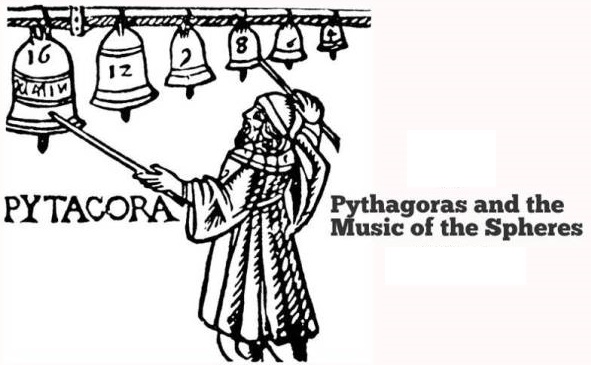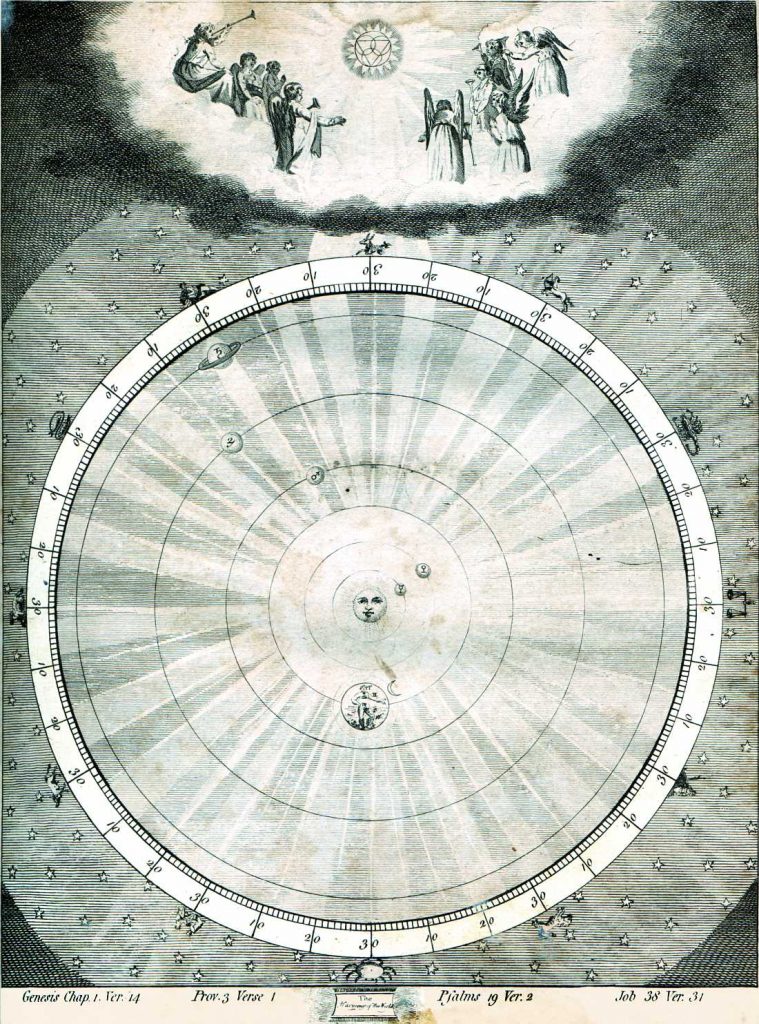Understanding World Cooperation and Achieving World Peace Through Music, Musica Universalis
The ancient Greek philosopher Pythagoras wrote: ‘There is geometry in the harmony of strings, music in the spacing of the spheres’. What he was noting was that every celestial body gives off a vibration that is peculiar to that body, thus it has a particular tone or sound that is associated with it. From this theory Pythagoras created the concept of Musica Universalis.

In most ancient cultures and civilizations music was a sacred art, with modes and rhythms all relating to planets and other heavenly bodies, natural phenomena and geography, times of the day, seasons of the year, birth and death, indeed all aspects of life.
In Hindu India musical notes were said to have souls and must be treated accordingly as living beings. This is in line with the Zoroastrian and Abrahamic notions of the many levels of angels who sing eternally throughout the heavens. Confucius taught that an understanding and appreciation of music is necessary for one to develop an enlightened mind.
The study of music in ancient cultures was a serious science, reinforced by teaching a disciple of music the necessary care and discipline one must adhere to in approaching the study of music. Many musical systems codify scales as modes, ragas and makamat. These various modes and note sequences all have particular features and were traditionally reserved for the time of the day or year- one thinks of the types of modes used in Gregorian or Byzantine chant, or as in the Hindustani tradition of performance with evening, morning or mid afternoon ragas.
In the middle ages, the Persian scholar Al Farabi extended the Pythagorean theories about the vibrations of musical notes and explored micro-tones, sound intervals that were smaller and more minute than those codified by the ancient Greeks. The study of music as a science has fascinated humanity and continues to do so today. However, music is older than cultivated civilization. It is a natural means of expression like dance, figurative art and sculpture, or storytelling. The people of the era we call ‘prehistoric’ used music as a sacred art, and viewed it as they did fire, wind, water and air. This is why when we watch folk dancers performing their ancient traditions as in the line dances of the Balkans, or the ritual dances of the peoples of Africa we notice how important it is for the participants to maintain and perform the steps of the dance, just as it is important to maintain the words of bards when recounting an ancient story.

The dance steps, like the words of a song or the melody being sung or played, or a tale retold are an integral part of that people’s common soul, thus their vibration. Every people who dwell upon the Earth produce folk music that is unique to their nation or culture and stress those emotions that are pertinent to their lives. For the native peoples of South America, the Earth Mother known as ‘Pacha Mama’, like the feminine concept of Shakti in India, pervades everything. Pythagoras, a man living in a patriarch dominated society described the power of numbers; he described One as the foundation of power, Two the divisive element, Three the restoration of unity and Four as the perfect square, a feminine number that brought about justice and equality. Thus the feminine aspect of the universe is universally acknowledged. Like cuisine and literature, music varies.
We can identify a musical genre knowing that it sounds different from what our own nation, tribe or culture’s music sounds like, just as we can tell the difference in various cuisines when we partake of that nation’s food. But like food and language which stem from the need to express ourselves or satisfy a craving or desire, differences are a richness that can be enjoyed, respected and shared when we are conscious of the fact that we all need to eat, speak, and soothe ourselves with the magic of music. Pythagoras stated that every celestial body has a vibration associated with it. If this be the case, then every being has a personal vibration as well. Every human has a particular heart rhythm, breathing pattern, mode of movement and speaking. Like the spheres, planets, stars and celestial bodies each of us in an individual planet placed into this orbit we call life. Jupiter for example does not complain about Mars, nor does the Sun tire of Mercury. They exist and play off each other and create their own symphony within an endless plethora of other symphonies. As far as we can tell, none of these bodies are concerned about how they sound to the Milky Way or Alpha Centauri and the latter doesn’t care either. In this, pardoning my silly example we can visualize the harmony, the Musica Universalis. It is our destiny, to recognize each other. To be conscious of each other, to know each other’s music and how each people express joy and sadness though these collections of vibrations enlightens us in ways we cannot imagine. Watching a performance of a folk dance accompanied by appropriate music from some culture far from our own inspires us, stirs our curiosity, beckons us to research and become familiar with that culture.
I know from my own experience in following the call of the folk and classical traditions of the world’s people’s how satisfying this endeavor can be. Mark Twain said “travel is fatal to prejudice, bigotry and narrow mindedness”. I would add that knowledge of each other’s vibrations, to know what role each of us plays, what each society plays in that cosmic symphony, in all the myriad manner of artistic and musical expression in the world, is a method to attaining world cooperation, harmony and peace.
Pythagoras was correct in his assessment of the spheres, as he was simply breaking the outer shell of what would become a most profound and important science-acknowledging that each of us, like the celestial bodies, are also part of the greater cosmos and an individual manifestation of universal harmony. If we can apply this concept of ‘universal music’ through our own personal vibrations as planets ourselves to our daily lives and in the manner in which we relate to each other as human beings, in how one nation relates to another nation; then perhaps the dreams of the countless visionaries, prophets and philosophers of old who envisioned a world in harmony with itself…may finally come to pass. I believe that music is a most important assistant in that noble endeavor.
